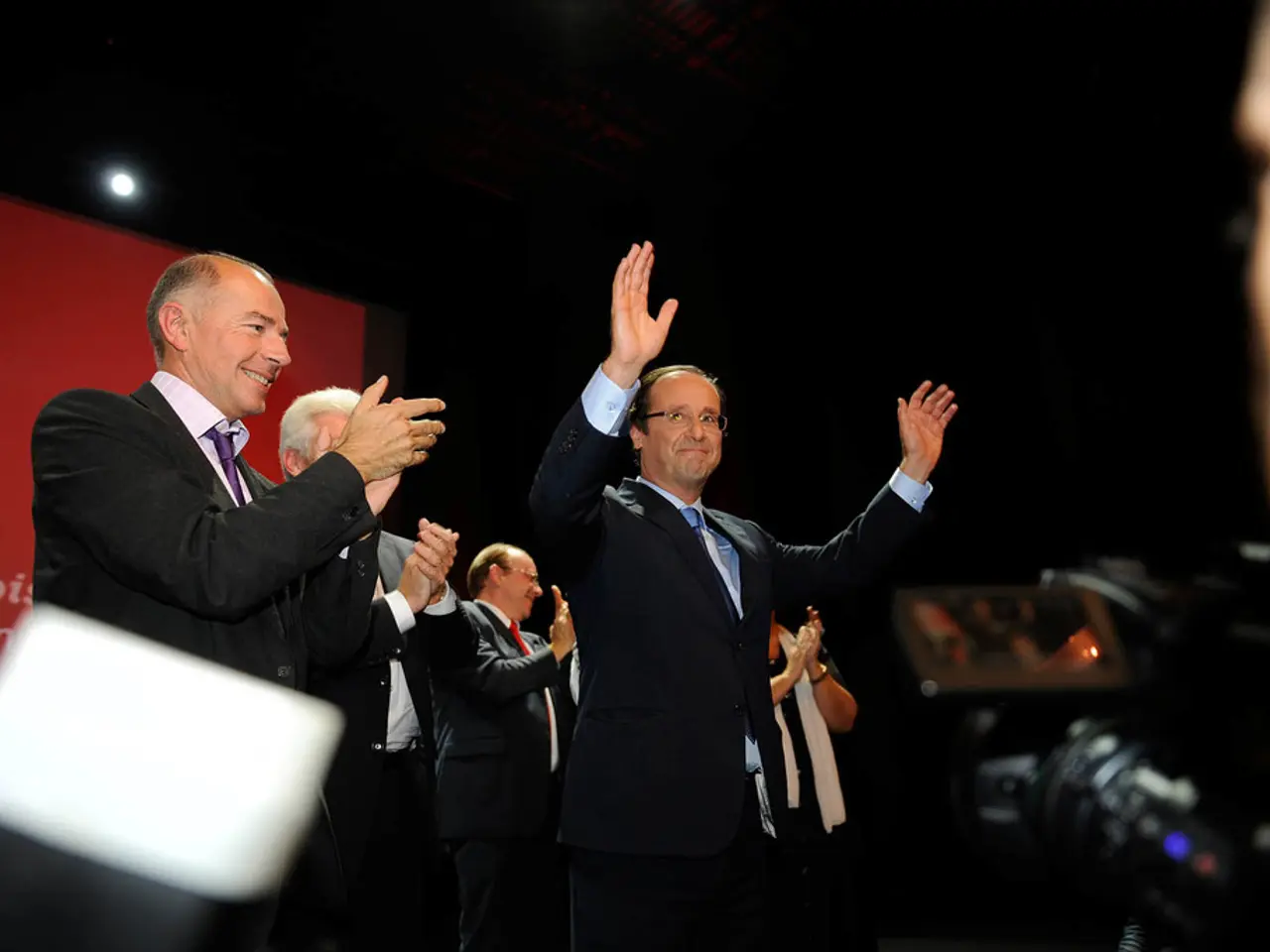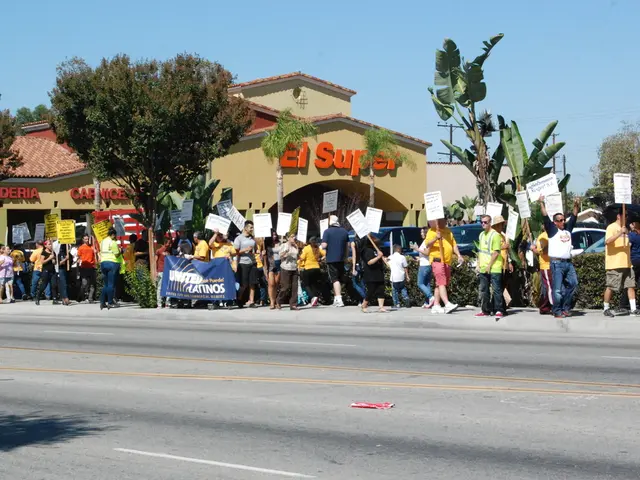Palestinian opposition leader supports suggestion for military action to rescue captive Gazan hostages
On August 17, 2025, a nationwide general strike took place in Israel, led by groups representing families of hostages and bereaved relatives, to demand a ceasefire with Hamas and the release of approximately 50 hostages believed to remain in Gaza.
The strike was driven by growing frustration after nearly two years of conflict and fears that continuing military operations could jeopardize the hostages' lives. Protesters chanted slogans such as "We don't win a war over the bodies of hostages," emphasizing their call for a negotiated solution rather than further fighting.
The state response included police using water cannons and making dozens of arrests, illustrating tensions between the government and segments of the population opposed to ongoing hostilities. The strike's outcomes publicly heightened attention to the demands for a ceasefire and humanitarian considerations for the hostages, signaling significant internal political pressure on Israeli leadership.
The strike was initiated by Yair Lapid, the Israeli opposition chief, who called for a general strike in solidarity with the hostages still held in Gaza. This call followed the Israeli government's approval to expand the war into the remaining parts of Gaza not yet controlled by the military, sparking fears that more hostages might die as a result.
The Histadrut, Israel's main trade union federation, decided against joining the strike but will support "workers' solidarity demonstrations." The Hostages and Missing Families Forum, the main representative group for relatives, has backed the idea of a strike. This group has accused the government of sacrificing the remaining hostages "on the altar of an endless, aimless war."
The strike, initially called for by around 20 parents of hostages, is not considered party political, according to Lapid. The Hostages and Missing Families Forum has called for a "citizens' strike" and for everyone to take a day off on Sunday to follow the dictates of their conscience. Sunday, being the first day of the working week in Israel, was chosen for the general strike.
As of now, 49 hostages are still held in Gaza, including 27 the Israeli military claims are dead. This ongoing situation has led to a significant public outcry and calls for a peaceful resolution to the conflict. The strike on August 17, 2025, marked a significant moment in the ongoing Gaza conflict, highlighting the concerns of the Israeli population and the need for a negotiated solution.
[1] Based on various news sources.
- The conflict in Gaza, now into its second year, has led to a surge in demand for a ceasefire, with the latest news being the nationwide general strike launched by families of hostages and bereaved relatives.
- The strike was initially called by around 20 parents of hostages, followed by a call from Yair Lapid, the Israeli opposition chief, for a general strike in solidarity with the hostages still held in Gaza.
- The ongoing situation has sparked concern and frustration, with protesters chanting, "We don't win a war over the bodies of hostages," emphasizing their call for a negotiated solution rather than further fighting.
- In the realm of politics, the strike has publicly heightened attention to the demands for a ceasefire and humanitarian considerations for the hostages, signaling significant internal political pressure on the Israeli leadership.
- As a result of the strike, the need for peace and a negotiated solution in the Gaza conflict has grabbed the attention of various sectors, including the art world, with artistic expressions emerging to voice their support for the hostages and demand an end to war-and-conflicts in the region.






